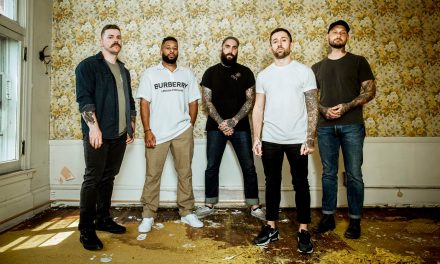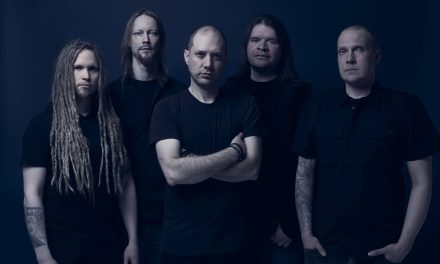
Melissa Manchester: An Artistic Walk Through A Brilliant Career
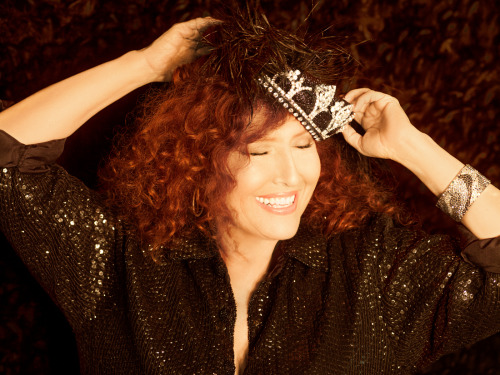
 The Highwire Daze Legacy Interviews
The Highwire Daze Legacy Interviews
Melissa Manchester: An Artistic Walk Through A Brilliant Career
(Original Postdate: 02/06/15)
(Editor Ken’s Note 2020: This is the first of what would be three interviews with the legendary Melissa Manchester that I did for Highwire Daze Online. This one was for the release of You Gotta Love The Life, which was her first album in nearly a decade. Orginal article intro is below…)
From the sweeping ballads of Midnight Blue and Don’t Cry Out Loud to the dazzling disco inflections of You Should Hear How She Talks About You and beyond, singer Melissa Manchester has left an impact all of whom encounter her vast and glorious body of work. It’s been ten years since the last full length studio effort, and now Melissa Manchester returns with the graceful You Gotta Love The Life. An adventure in crowd funding with a cast that include legends such as Stevie Wonder, Hal David, and Dionne Warwick, You Gotta Love The Life is sure to enrapture Melissa Manchester fans all over the world. We caught up with the iconic singer to discuss the brand new album, a life in the music industry, advice for up-and-coming artists seeking a record deal. and other topics concerning a brilliant career in the ever-changing music business. And now Highwire Daze Online proudly presents our exclusive interview with the one and only Melissa Manchester…
First of all, why did it take over ten years to release a new album and how frustrating was it to wait so long?
Well, it wasn’t frustrating to wait so long. You know, things have a sort of divine time, is what I believe in. In that time I was writing and I was performing and I was sort of flipping around to see how people were on a different paradigm where you would sign a contract with a big record label, and they would bankroll your project essentially, and even when you made their money back and you were in the black, they still owned your work. And that just wasn’t working for me but I didn’t know another way to do it. It was through my students at USC where I learned about crowd funding and really, that’s their normal. As so, they suggested that I do it and they explained to me how it worked, and one of my students became my project manager, and they really walked my manager and I through this. And that’s why it took 10 years, which actually in the end, it just took the appropriate amount of time and it gave a change for the appropriate guest artists to show up and say yeah.
Is there any overall story or concept behind the title, You Gotta Love the Life and what made you choose that particular title?
It came out of a discussion I was having with my daughter, who was trying to figure out whether she wanted to be in show business. You know, she’s a good singer and I said “It’s not just about your talent. Your talent is just the fuel to stoke the fire, but the life is so unsteady and insecure. You’ve got to love that version of normal, to love every day that it unfolds and you have to figure out the next step to create your path.” And that’s really how it came out and I realize that it was me laying claim to 45 years of this artistic walk. So I’m glad it worked out that way.
You’ve done various styles of music throughout your career, what made you decide to explore smooth jazz for this album?
You know, record companies always seem to want to pigeonhole you into a style because it makes it easier to advertise you, help people figure you out. On the other hand, what I knew to be true was that whenever I was on stage, which is where I do my work, I do a variety of styles and I try out stuff. And, to my knowledge, nobody has ever had to be taken away in an ambulance from the shock of me doing a variety of music. So, when it came to doing this album, I just wanted it to be the culmination of what I know, and what I read, and what I want to share with people. Some of the styles that ended up on the album were worked out on stage in front of audiences, and they were the ones who suggested I record some of the standards. So this is just an album that at last re-introduces me to say this is who I am and this is what I’ve learned.
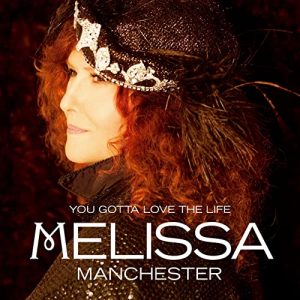
[laughs] Yes, he does know Stevie’s Wonder and he’s never forgotten that I wrote it for him with Carole Sager, and so when he came into the studio, he started singing that, which was very sweet. It was great working with him. I’ve been told that he gets about 500 requests a day to work on projects so I was very touched and honored when he said yes to mine. He came down to Citrus College where we were recording and comes with a bunch of handlers, his driver, his bodyguard, his makeup person, and his nutritionist, and his PR person.
When he actually came into the studio and he showed up with his box of harmonicas, he had listened to the track and he said “What were you thinking of musically?” And somebody in that position, you sort of defer to whatever they want to do and he said “No, no, no, no, you have something in your mind. What do you want me to play?” And he walked into the studio with his box of harmonicas and he just played, and played, and played, and played and refined it and played it again and we ended up with enough stuff for numerous songs, so it was really very lovely.
You worked with Dionne Warwick on this album. Was this your first time working with her? What was that like?
She had been a musical heroine of mine since I was 15 years old, and as you know she built her career on the music of Burt Bacharach and the lyrics of Hal David. When I wrote this song with Hal David, what turned out to be his last set of lyrics, to my music, reaching out to her although the song wasn’t constructed to be a duet. Reaching out to her and having her be a part of this final song of Hal’s, and having the late great Joe Sample playing piano on this, and having two women sing on this. It brought a richness and a depth to the song and it was an unexpected gift – it was beautiful. She was fantastic. We worked together on television shows and benefits and stuff, but we’ve never recorded together. She’s recorded music of mine, but this was just unbelievable.
What advice would you give a young singer/songwriter looking for a record deal with this day in age?
Looking for a record deal, you know, good luck. [laughs] They’re aren’t that many record companies left. Really, because of the industrial revolution of the music industry, which is anybody can post a video of themselves singing original music on YouTube you can become a great big hit on YouTube without ever being put on the radio. It’s interesting, these are unusual and interesting times and it’s the democratization of music. Many things are possible. It’s just that if you’re going to be an independent artist, that’s sort of code word for you gotta work five times as much as if you were signed. You just have to keep pushing at it. You have to keep working at clubs. You work in really rough places and you hone your craft. That’s what takes you to the long distance part of this.
When you look back on the massive success you had with “You Should Hear How She Talks About You,” what do you think of that song now and that time period of your career?
During that time it was an unlikely song that was given to me by my two dear friends Dean Pitchford and Tom Snow. I was mostly singing mid-tempo and ballads. This song was very poppy, right out of the disco world and I had the great honor of being produced by the genius Arif Mardin. I wrapped my head around it, the basic structure of the song is just fine but it was very surprising when after I recorded it and I won the Grammy for the song, which was incredible, the song made me queen of aerobics classes. It was wild. That was kind of nuts, but it just took me a while to be okay with the spirit of it because it was just so unusual for me, but now when I do it, it’s so lovely to laugh at myself with the audience because we’re filled with nostalgia and amusement, and it’s great.

I feel fine about it, it was an adventure. It was a wonderful opportunity to spread my wings as an actor and to be able to sing on the show as well, working with Mayim Bialik was just wonderful. She was a young teenage girl then, but charming and bright as can be. It was great, just wonderful. I was thrilled to be able to be a part of it for a few years.
Do you still keep in touch with Bette Midler and what was it like working with her back then?
I do stay in touch with her and she’s one of the most brilliant women I’ve ever met. She’s a true artist. There’s real deep intelligence and compassion behind her work. There was a huge vision that she had and I was honored to be a part of it at a very early moment. It was perfect.
What can we expect for the upcoming live Melissa Manchester concerts?
I certainly am going to share the sonic world of “You Gotta Love The Life.” I’m singing lots of songs, so I want to share that with the audiences. And of course I will be singing the hits that became the pillars of my career because I’m very grateful to those songs and to the people who wrote the songs. My collaborators and the people in the audience that were touched in unique ways by those songs. So, it’s a great big variety of all this music.
Will we have to wait another ten years for a new Melissa Manchester album?
I hope not! [laughs] This is really entering the new world and now that I’ve done some crowd funding and seeing what that path is, it’s a very rigorous path by the way to hold a campaign, you do need a village to do it. Once we see how this lands, and hopefully it is successful enough for us to think that a followup would be a really good idea. I would do it again, absolutely.
Do you have any messages for your fans who are reading this now?
To my fans, I’m so excited that you have walked this journey with me. It’s been very touching and I can’t wait to share these songs with you.
(Interview by Ken Morton – Live Photo by Jack Lue)
Melissa Manchester on Facebook










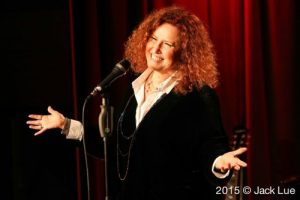 The Highwire Daze Legacy Interviews
The Highwire Daze Legacy Interviews

